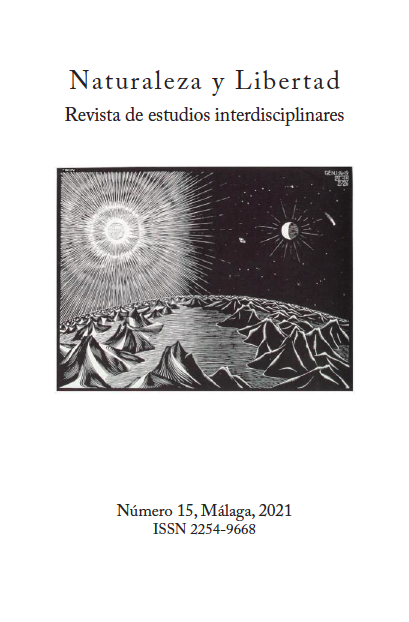Ethnobiology for the Solega Linguistic Perspective
DOI:
https://doi.org/10.24310/NATyLIB.2021.vi15.12844Keywords:
Linguistic perspective, Etnobiology, Solega, Etnoclasification, Traditional KnowledgeAbstract
The Traditional Ecological Knowledge of the Solega: A Linguistic Perspective, documents the traditional knowledge of the Solega. The book consists of eight chapters, in which it addresses: the importance of linguistics in research on ethnobiology, ethnoclassification, the importance and classification of plants in the community, ethnoornithology, the concept of landscape from the perspective of the Solega, a semiotic analysis of the community, and the knowledge about the bees of a non-apicultural community; In the final chapter, he discusses the nature of research focused on traditional ecological knowledge.
Downloads
Metrics
References
Downloads
Published
How to Cite
Issue
Section
License
Those authors who have publications with this journal, accept the following terms:
1. Copyright and licensing information are clearly described on the journal’s web site: all content published in Naturaleza y Libertad is open acces without limit, and are subject to the Attribution-NonCommercial-ShareAlike 4.0 International (CC BY-NC-SA 4.0) license. The full text of which can be consulted at https://creativecommons.org/licenses/by-nc-sa/4.0/
2. It is the responsibility of the authors to obtain the necessary permissions for the images that are subject to copyright. The authors whose contributions are accepted for publication in this journal will retain the non-exclusive right to use their contributions for academic, research and educational purposes, including self-archiving or deposit in open access repositories of any kind. The electronic edition of this magazine is edited by the Editorial de la University of Malaga (UmaEditorial), being necessary to cite the origin in any partial or total reproduction.
3. This journal allows and encourages authors to publish papers on their personal websites or in institutional repositories, both before and after their publication in this journal, as long as they provide bibliographic information that accredits, if applicable, your posting on it.
4. In no case will anonymous papers be published.





18.png)













